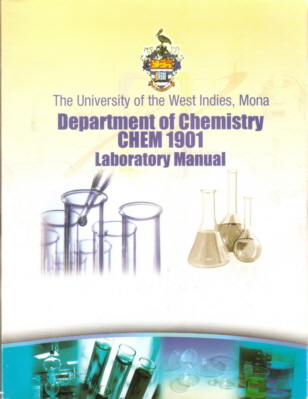Analytical Chemistry Laboratory Manual
- Are you interested in science?
- Do you like working with computers?
- Do you have good manual dexterity?
- Do you pay attention to details?

Analytical Chemists are in demand!
Quality Manual Analytical Laboratories, Inc. Issue Date: 2009/11/24 Rev.: 1 Page #: Section 0 - Cover Page / Table of Contents / Introduction 4 of 4 Introduction Purpose This Quality Manual contains all the requirements that our laboratory uses to demonstrate our quality management system, technical competence, and valid results. CHEM 3111 - ANALYTICAL CHEMISTRY LABORATORY Fall, 2015 Dr. Tanya Shtoyko Office: RBS 3002, 565-5502. Assess data obtained using common analytical methods; 6. Solve real life problems by designing and performing the chemical analysis. Chemistry 3111 lab manual, UT at Tyler, 2015, experiment 2. This manual written to help first year veterinary medicine students in analytical chemistry laboratory work. Practical work, described in this book, includes classical, mostly used in practice, essential for VA absolvent methods of chemical and instrumental analysis. Laboratory Quality Control. This chapter addresses the control of the analytical process in the laboratory, as distinct from meeting the typical analytical needs of a specific project. Quality control provides quantitative estimates of analysis and measurement controls that can be used to determine compliance with project objectives. CHEM 3111 - ANALYTICAL CHEMISTRY LABORATORY Fall, 2015 Dr. Tanya Shtoyko Office: RBS 3002, 565-5502. Chemistry 3111 lab manual, UT at Tyler, 2015.
Laboratory Technology – Analytical Chemistry is a three years technical program including 33 courses over 6 semesters divided into General Education and Concentration Education.

Analytical Chemistry Lab Manual
This program offers a large Choice of Careers: Pharmaceutical, Cosmetic, Petrochemicals, Agriculture and food, Environmental labs, Mines and metallurgy, Biotechnology, Aerospace and more!
Analytical Chemistry Lab Practical
Upon graduation, students can cumulate up to six months of work experience in the industry (students admissible in the Alternance Travail Études (ATE) program).
Why Laboratory Technology at Dawson?
Our program offers strong science background with emphasis on hands-on technology.
Main features: well-equipped laboratories, high teacher/student ratio, dedicated computer laboratories. Dawson is the only English CEGEP offering the program. Our program has close connections to industry, including remunerated internship through Alternance Travail Études (ATE) program.
Admission Requirements: Diploma of Secondary Studies (DES) with: Mathematics 564-506 or 565-506, Chemistry 551-504 Overall average required: 65%.
Application deadline: March 1st (Fall semester).
Program Information
Objectives of Program
- performing basic lab operations such as weighing, measuring precise volumes, heating, etc.
- testing for harmful micro-organisms found in industrial samples
- using conventional and modern procedures for the quantitative analysis and synthesis of organic and inorganic compounds
- proficiency in standard techniques used in industry
- using qualitative and quantitative methods to analyze samples in the biotechnology area
- expertise in compiling and processing laboratory data, writing scientific reports and submitting results using computerized software
- making products found in the marketplace
- maintaining laboratory instruments
- following GLP (good laboratory practice), SOP (standard operating procedures), and cGMP (current good manufacturing practices) compliance as well as respecting WHMIS (workplace hazardous materials information systems) regulations